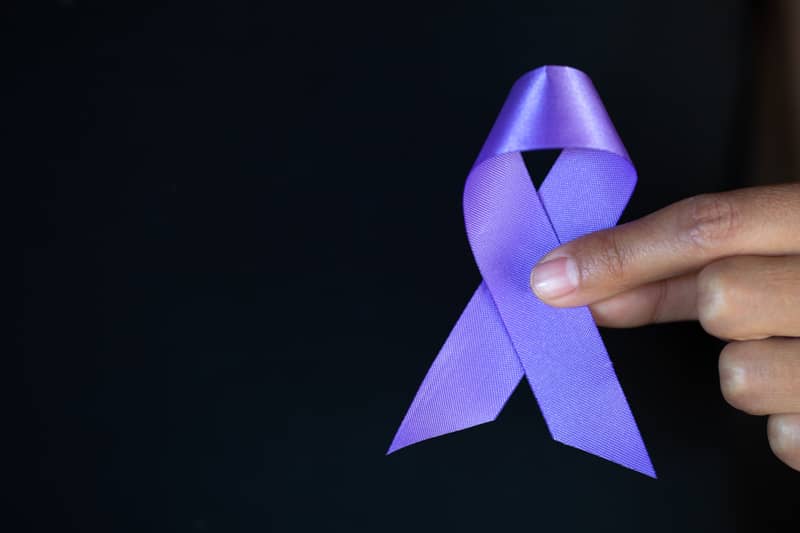Domestic Violence Protection Orders in Fayetteville

VICTIMS of Domestic Violence – 50B Domestic Violence Protection Orders in Fayetteville: What You Need to Know
If you are a victim of domestic violence, one of the most important things you can do is seek protection. This may come in the
form of a Domestic Violence Protection Order (DVPO).
In this blog post, we will discuss what DVPOs are and how they can protect victims of domestic violence. We will also provide information on how to obtain a DVPO in Fayetteville, North Carolina.
What Is a Domestic Violence Protection Order?
In North Carolina, there is a type of restraining order that protects victims of domestic violence. It is formally known as a Domestic Violence Protective Order (DVPO).
It is also commonly referred to as a Domestic Violence Protection Order, a “50B Order” or “DVPO.” It is a court order, the violation of which carries serious consequences.
A protective order can help to protect victims from further abuse and harassment, and it can also help to ensure that the abuser does not have contact with the victim.
DVPOs are regularly issued in cases of domestic violence where there is a history of abuse or an imminent threat of abuse.
What are the Top Warning Signs of Domestic Violence?
There are some common warning signs of domestic violence.
However, it is important to remember that every case is unique, and these warning signs may not be present in every victim.
Some of the most common warning signs are:
- Bruises or other injuries that do not match up with a person’s explanation for how they were injured
- Wearing clothing that covers up bruises or other injuries
- Having a fear of the person who is abusing them
- Making excuses for the abuser’s behavior
- Isolation from friends and family members
- Staying with the abusive partner despite wanting to leave
- Experiencing symptoms of PTSD, depression, or anxiety
- Having suicidal thoughts or attempting suicide
How Can a DVPO Help Victims?
There are many ways that a DVPO can help victims of domestic violence. Some of the most important benefits include:
- Protection from further abuse, imminent serious bodily injury, sexual assaults, and harassment
- Prevention of contact with the abuser
- Assistance in obtaining temporary custody of children
Who can file a Domestic Violence Protective Order in North Carolina?
Any victim of domestic abuse can file a DVPO.

A victim can be any adult, or minor in the custody of or residing with an aggrieved party, who has been subjected to domestic violence and has had a personal relationship with the abuser.
This includes, but is not limited to: spouses, ex-spouses, parents and children, dating partners (including same-sex couples), siblings living together, and roommates.
Need help with a Divorce in Fayetteville?
North Carolina law allows parents to file a DVPO on behalf of minor children, whether or not there has been a legal separation or the parties are divorced.
What is the process for getting a DVPO in Cumberland County?
If you are a victim of domestic violence and would like to seek a Domestic Violence Protection Order, the process can seem daunting. However, our attorneys at Beaver Courie Law Firm in Fayetteville are here to help.
Sample Complaint and Motion for DVPO
Here is an overview of the process:
First, you will need to file a petition for a DVPO. This can be done at the Cumberland County Courthouse. We can help in the preparation and filing of the appropriate Complaint and Motion.
The Plaintiff, the person filing the Complaint, will then need to appear in court for a hearing, where the Defendant, the person accused of abuse, will also have an opportunity to be heard. Legal counsel can be helpful during the trial, calling witnesses, asking questions, and presenting evidence on behalf of their client.
A District Court Judge hears evidence of the matter and decides whether to Order a DVPO.
What Happens After a Domestic Violence Protection Order is Issued?
Once a domestic violence protective order is issued, there are a number of things that can happen:
- The abuser may be prohibited from having any form of contact with the victim, either in person or through electronic means such as texting or social media
- The abuser may be allowed to have contact with the victim(s), but be Ordered not to further abuse, threaten, or assault the victim. The Court takes into consideration what the victim requests as to the forms of “relief” sought in the Complaint
- The abuser may be ordered to leave the home, and may not return without permission from the court
What protections are available under a domestic violence protection order?
A domestic violence protective order can include any or all of the following protections:
- Prohibit contact with the victim and/or members of their family, either in person or through electronic means or through friends or family
- Order that the abuser leave the home (and not return without permission from the court)
- Grant temporary custody to one parent
What happens at a 50B Hearing?
The petitioner and the abuser will both have an opportunity to give testimony at a hearing. The judge may also allow witnesses to

testify.
Unlike criminal court, the Defendant may be called as a witness at the DVPO hearing. The Defendant may “Take the Fifth,” but invoking the 5th Amendment may be considered by the Court in determining whether to grant a DV restraining order.
In domestic violence cases, there may not be physical evidence of abuse or harassment (although this can be the case). Therefore, it is important for victims of abuse to provide as much evidence as possible to support their case.
This can include but is not limited to police reports, medical records, photographs of injuries, text messages or social media posts that show abuse or harassment, and witness testimony.
If you are a victim of domestic violence and would like more information on Domestic Violence Protection Orders, please contact our attorneys at Beaver Courie Law Firm in Fayetteville, NC.
Temporary vs. Final DVPO
There are two types of Domestic Violence Protection Orders that victims can seek: temporary (Ex Parte Order), followed by a 1-Year DVPO.
A Temporary DVPO may be issued when there is an imminent threat of abuse, or if the victim needs protection while they wait for a hearing in civil court to obtain a permanent order.
Normally that takes place within 10-days of the filing of the Complaint and Motion for the DVPO and requires proper service of the Complaint on the Defendant.
A judge may issue this Order without notifying the abuser (known as an ex parte order). Indeed, that is the very definition of Ex Parte or “on the one side only.” A temporary Order may be entered on the testimony (by oath or affidavit) by one party only.
A Final DVPO is a permanent order that can last for up to one year. The abuser has the opportunity to be heard, to tell their side of the story, and to contest the entry of a 1-Year DVPO. Both parties will have the chance to present their case in court.
If you are a victim of domestic violence, it is important to understand the difference between these two types of orders and to seek legal assistance if you would like to file for a Domestic Violence Protective Order under NC Chapter 50B.
If you are a victim of domestic violence, please contact our attorneys at Beaver Courie Law Firm in Fayetteville, NC. We can help guide you through the process and provide representation in court. You are not alone.
Violating a Domestic Violence Protective Order
If the abuser violates a Domestic Violence Protection Order, they can be arrested and charged with violating a 50B protective

order.
This is a criminal offense and can carry jail time, probation, and/or a fine. In fact, it is a Class A1 misdemeanor in North Carolina and is subject to a term of imprisonment of up to 150 days in jail.
Aggravated misdemeanors are serious criminal matters in North Carolina.
It is important to report any violation of the order to law enforcement immediately.
You may be asked to provide information about the location of the Defendant, tell the police what happened, and be prepared to come to criminal court in the event of criminal charges.
What should I do if they violate the 50B?
If there is a violation of the order, you should call 911 or your local law enforcement in Cumberland County.
You can also contact our attorneys at Beaver Courie Law Firm in Fayetteville, NC for legal advice and representation if an abuser has violated your protection order.
Prior to speaking with you about the matter, we will conduct a Conflict Check to confirm the availability of our law firm to help you.
What are the consequences of Domestic Violence to children?
It is estimated millions of children witness domestic violence each year in the United States.
The long-term effects of witnessing domestic violence can be devastating for children and can include:
- Developing behavioral problems, such as aggression or difficulty concentrating in school
- Exhibiting signs of post-traumatic stress disorder (PTSD) or depression
- Developing poor coping skills and withdrawing from relationships with peers and adults
- Poor academic performance, such as failing grades in school
- Experiencing difficulties forming healthy intimate relationships later in life
What constitutes DV?
There is no one-size-fits-all answer to this question, as domestic violence can take many different forms.
Generally, however, domestic violence refers to physical or emotional abuse between family members or intimate partners.
It can include:
- Physical assault or battery
- Sexual assault, Sex Offenses, and Rape
- Emotional abuse, such as verbal threats or harassment
- Stalking/cyberstalking
- Financial abuse, such as controlling the victim’s finances
- Controlling behaviors that take away the victim’s freedom, such as keeping them from seeing friends and family members
What are the consequences of Domestic Violence to an adult victim?
Domestic violence can take a severe psychological and physical toll on adult victims. Some of the most common effects include:
- Depression, anxiety, or panic attacks
- Poor self-esteem and body image issues
- Suicidal thoughts or attempts at suicide
- Post-traumatic stress disorder (PTSD)
- Substance abuse problems, such as alcoholism or drug abuse, sometimes as a coping mechanism for dealing with the trauma of domestic violence
- Physical injuries from assaults or attacks by an abuser
- Sexual health issues, including sexually transmitted diseases (STDs) and unintended pregnancies
What if the abuser is not a spouse, boyfriend/girlfriend?
Family members who are victims of abuse may also be able to obtain protection orders in North Carolina. You do not have to live with the abuser to obtain a DVPO in North Carolina.
If you are not married to the abuser but have a child in common with them, you can file for a DVPO.
You can also file for a DVPO if you have been dating or living with the abuser.
What is Stalking?
Stalking is a pattern of repeated, unwanted contact with the victim.
It can include:
- Following or spying on the victim
- Damaging the victim’s property
- Sending unwanted emails, text messages, or letters
- Calling the victim repeatedly
- Approaching the victim in public places
Stalking can cause substantial emotional distress, fear of bodily injury, and the dread of continued unwanted advances and harassment.
Am I required to press charges?
No. You are not required to press criminal charges against the abuser.
However, if you decide to pursue criminal charges, we think it’s a good idea to work with an attorney who can help guide you through the process and explain the similarities and differences between Civil Court and Criminal Court.
The District Attorney’s Office in Cumberland County is responsible for prosecuting criminal offenses. Lawyers can help provide information and potential evidence to the Assistant District Attorneys assigned to the matter.
If you are a victim of domestic violence and would like more information on Domestic Violence Protection Orders, please contact our attorneys at Beaver Courie Law Firm in Fayetteville, NC.
Can I dismiss the charges??
Once you have filed a domestic violence report and charges are brought, the District Attorney takes over and decides whether the case should be dismissed.
Obviously, the prosecutor assigned the matter will want to hear what you say and your reasoning for asking for a dismissal of charges, if that’s what you want.
The District Attorney’s decision whether or not to dismiss is based on many factors including:
- The number of prior domestic violence arrests or convictions the defendant has
- Whether there are independent eyewitnesses to the incident
- The severity and nature of injuries inflicted on the victim
- Whether or not you have been pressured to dismiss the charges
- The likelihood of additional acts of domestic violence in the future
- Dangers to minor children residing within the household
What are some signs that I may be a victim of Domestic Violence?
There are some common warning signs of domestic violence. However, it is important to remember that every case is unique, and these warning signs may not be present in every victim.
Warning signs may include things such as:
- Bruises or other injuries that do not match up with a person’s explanation for how they were injured
- Wearing clothing that covers up bruises or other injuries
- Having a fear of the person who is abusing them
- Making excuses for the abuser’s behavior
- Isolation from friends and family members
What are some common myths about Domestic Violence?
Myth: Domestic violence is a personal problem and should be handled by the victim.
Fact: Abuse of any kind, including domestic violence, affects everyone in a community. It affects children who witness the abuse or live with an abusive parent. People who are abused feel isolated and alone, so they often do not ask for help or support. Domestic violence is not a private matter; it affects entire communities and should be addressed by everyone in that community.
Myth: Victims of domestic violence are responsible for being abused. It takes two to tango, right?
Fact: There is never any reason or excuse for abuse, ever! The victim does not cause the abuser to be abusive. The victim does not cause the abuse and is never responsible for it.
Myth: Domestic violence only happens in poor or uneducated families and communities.
Fact: Domestic violence occurs across all socioeconomic, racial, ethnic, religious, and professional groups at equal rates of occurrence. This means that doctors, lawyers, teachers, and people from all walks of life can be victims of domestic violence.
Myth: Victims always leave their abusers.
Fact: Many victims do leave their abusers, but many also stay in the relationship for a variety of reasons including fear for their safety, financial dependence on the abuser, or emotional ties to the abuser. Leaving an abuser can be a dangerous time for the victim and may require careful planning.
Myth: Victims who stay with their abusers are dishonest or weak.
Fact: This myth assumes that leaving an abusive relationship is as simple as packing up your things and walking out the door. In reality, victims of domestic violence have to consider many issues before they can leave, including safety concerns for themselves and their children. Leaving an abusive relationship is a process that requires time and preparation to ensure the victim’s safety.
Myth: Domestic violence only happens in heterosexual relationships.
Fact: Lesbian, gay, bisexual, and transsexual (LGBT) individuals also experience domestic violence at rates similar to heterosexual individuals.
Myth: Domestic violence only happens to women.
Fact: Men can also be victims of domestic violence, and the rates of domestic violence against men are increasing. In fact, one in four victims of intimate partner violence is male.
If you or someone you know is a victim of Domestic Violence, please don’t hesitate to reach out for help. There are resources available, and you do not have to face this alone.
The National Domestic Violence Hotline provides 24/hour support for victims of domestic violence:
Toll-free: 800-799-SAFE (800-799-7233)
Website: TheHotline
Will I have to come to court?
You will have to come to court.
Your abuser will be notified of the hearing, but they are not required to attend.
If properly served with a Complaint and Motion for Domestic Violence Protective Order, the Defendant’s failure to attend the hearing may result in the Court Ordering a 1-Year DVPO against the Defendant.
Will I have to testify?
You will have to testify at the hearing. The Court may also review your Complaint and Motion. The Plaintiff carries the Burden of Proof.
The judge may hear testimony and evidence from both sides, then makes a final decision on whether or not to issue a DVPO.
Will the Judge be mad at me?
No. Judges are not mad at victims who come to court and request a DVPO or other relief.
Judges understand the sensitive nature of such matters.
What happens if I do not show up in court?
If you wish to obtain a DVPO, it is important that you appear in court on the date set for your hearing.
Otherwise, your case may be dismissed and no protective order will be granted.
What is a No Contact Order – 50C?
A 50C is a civil no contact order that may be issued by the Court. It prevents your abuser from having any contact with you.
If your abuser does have contact with someone listed on the Order, they will be in violation of the Order and could face serious legal consequences, including Contempt of Court proceedings.
50C – Civil No Contact Orders – The Law
A “50C” is different from domestic violence protective orders. Under North Carolina Law it is referred to as Civil No Contact Orders. Like a Complaint and Motion for DVPO, they are filed in civil court.
How long does a domestic violence protective order last in North Carolina?
In North Carolina, domestic violence protective orders will ordinarily last for one year. However, it can be extended if necessary. If your abuser violates the Order, they may face serious legal consequences.
Do I need an attorney to get a DVPO?
No. However, hiring an attorney for your domestic violence protective order may be beneficial. An attorney can help you through the process of filing for a DVPO and ensure that all of your legal rights are protected.
The attorneys at Beaver Courie Law Firm in Fayetteville are here to help victims of domestic violence get the protection they need through Domestic Violence Protection Orders (DVPOs).
What if I need to leave the state??
If you need to leave the state in order to escape your abuser, there are several national organizations that offer help and support to domestic violence victims, such as The National Domestic Violence Hotline. You can find more information on their website: TheHotline.org
What Is A Temporary Domestic Violence Protective Order?
A temporary restraining order is issued by a judge and prohibits your abuser from doing certain things while they wait for their court date. It usually lasts until that court date so that it can be determined if a permanent restraining order is necessary.
As it pertains to DV cases, family law attorneys and criminal defense lawyers may refer to such Orders as Ex Parte.
What is Assault on a Female?
Assault on a female is a charge that can be filed against someone who commits an assault on a woman.
It’s important to note that not all assaults are considered domestic violence.
For example, if you hit your spouse in self-defense or because they attacked you first, then this may not qualify as domestic violence under the law.
However, if you are assaulted by your spouse or partner that could be considered domestic violence.
Are Harassing Phone Calls a Type of Domestic Violence??
Harassing phone calls may be a type of domestic violence. They can include texting, emailing, or calling someone repeatedly in order to annoy them or cause fear for their safety.
This includes threatening messages on social media sites like Facebook Messenger and Twitter DMs as well as private messages sent through Snapchat, Instagram Direct Messages (DMs), Discord, and WhatsApp.
Our attorneys are here to help victims get the protection they need through DVPOs. We can also help you file for a restraining order if you are not sure what to do.
If you or someone you know is a victim of domestic violence, please don’t hesitate to contact us.
Ex Parte Domestic Violence Protection Orders in Fayetteville: What You Need to Know as a Victim
A temporary restraining order lasts for a short period of time and may include provisions such as:
- Prohibiting the abuser from contacting you or coming near you
- Giving temporary custody of children to one parent and prohibiting the other parent from seeing them
Can texting be considered Domestic Violence?
Texting can be considered domestic violence if it is used to harass or threaten someone.
Can I get Domestic Violence Protective Order Against Someone I Dated?
It is possible to get a temporary Ex Parte and permanent (1-Year) restraining order against someone you used to date. The attorneys at Beaver Courie Law Firm in Fayetteville may be able to help you with this process and ensure that all of your legal rights are protected.
What is Sexual Assault?
Sexual assault is any type of unwanted sexual contact.
It can include groping, kissing, touching someone without their consent, and sex crimes such rape and sex offense(s).
What should I do if I am a victim of Domestic Violence?
If you are a victim of domestic violence, it is important to get help right away.
Call 911 if there is an immediate threat to your safety or call our office at (910) 323-4600 to speak with one of our attorneys about your options for filing charges against the abuser.
What is Abuse?
Abuse can take many forms, including physical violence like punching and kicking; substantial emotional distress such as name-calling or insults; sexual assault which involves unwanted touching of any kind (even if it’s just kissing); stalking someone through text messages, social media, or in person; and financial abuse where the abuser controls all of the money or forces the victim to hand over their paycheck.










